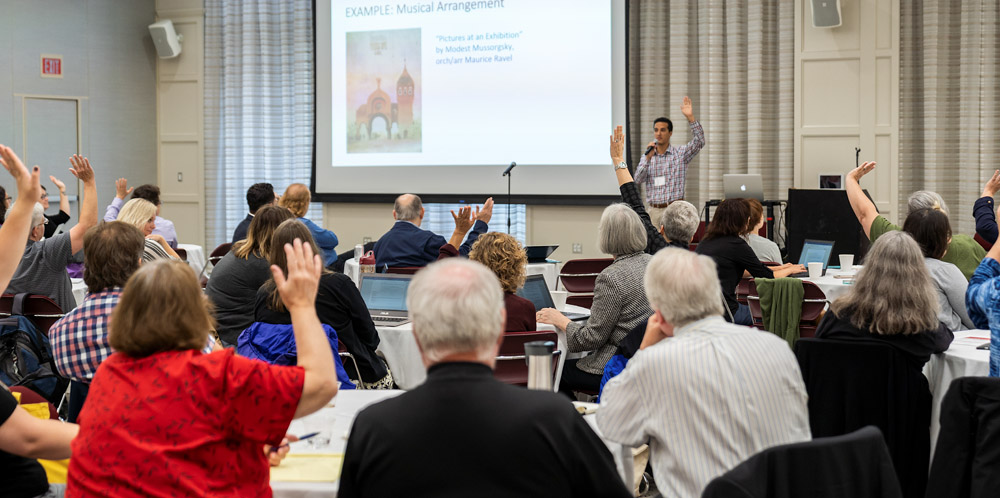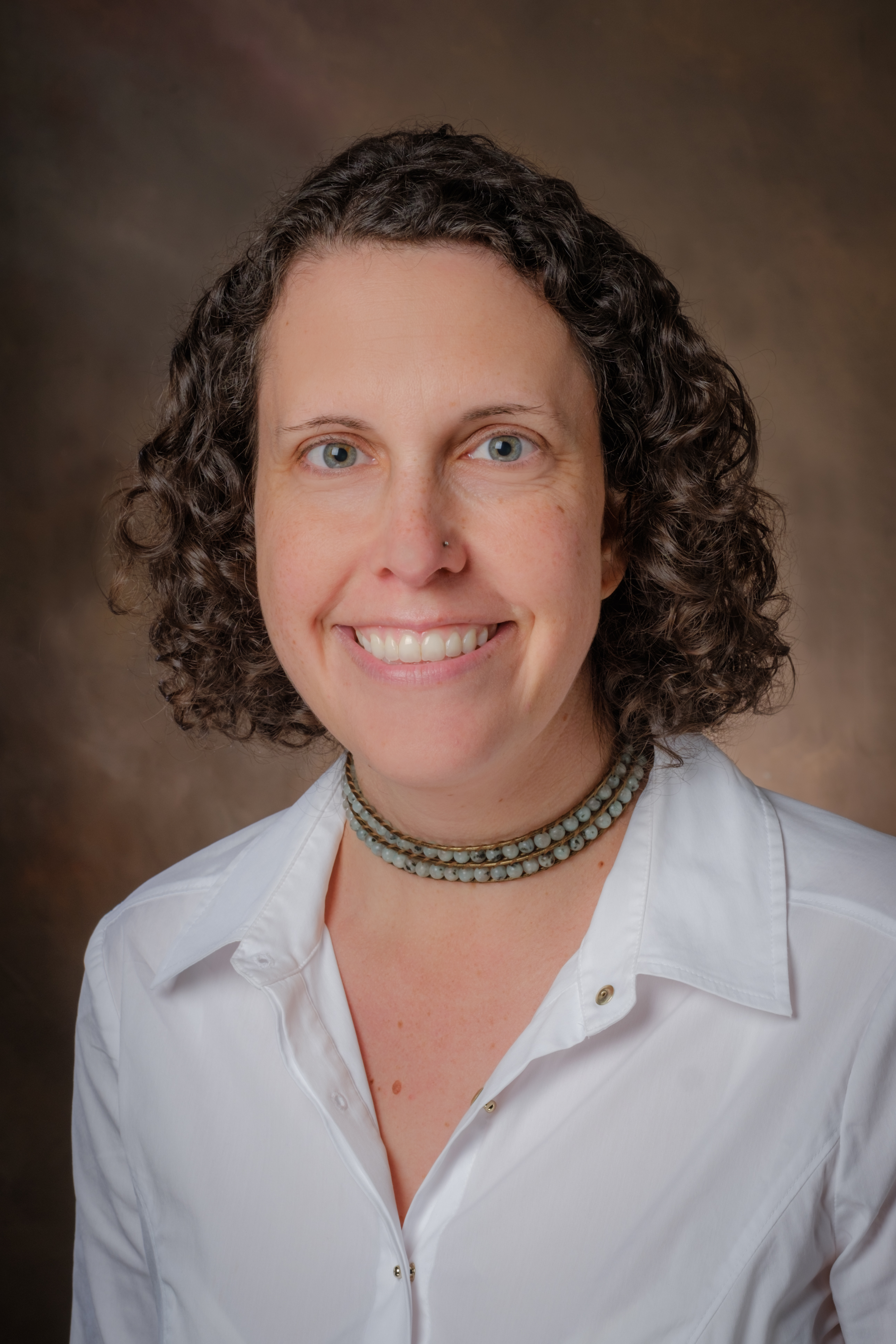
Miami University Libraries recently held a first-of-its-kind two-day conference exploring the intersection of copyright law and music. On Sept. 26 - 27, librarians, musicians, legal counsel, educators and administrators from across the country gathered in Shriver Center to discuss the unique challenges higher education institutions face in navigating music copyright law.
“We had 53 people from 17 states. We had a really broad perspective: the group was large enough to have some great discussions, but also small enough to have direct conversations about what we’re dealing with at our institutions,” said conference organizer and University Libraries’ coordinator of scholarly communications Carla Myers.
After hosting a more general copyright conference in 2017, the Libraries focused 2018’s conference specifically on music copyright, a topic many find difficult.
“I’ve heard a lot of people say that copyright law for music is their ‘kryptonite’ - it can be more complicated for people,” said Justin Bonfiglio, copyright specialist at the University of Michigan Library and conference attendee. “It’s very nice to talk to a community of people who grapple with the same layers of confusion that I grapple with on a daily basis.”
In addition to its complexity, music copyright law has far-reaching implications for libraries and higher education.
 “This topic affects so many services that we as libraries provide our academic institutions: our music collections, musical performances on campus, student recitals, and even advertising and marketing if we have music playing in the background,” said Myers.
“This topic affects so many services that we as libraries provide our academic institutions: our music collections, musical performances on campus, student recitals, and even advertising and marketing if we have music playing in the background,” said Myers.
Conference presenters included Kenneth D. Crews, Kathleen DeLaurenti, Eric Harbeson, Nazareth Pantaloni, Carrie Russell, Maria Scheid and Ty Turley Trejo, bringing expertise from a diverse array of fields and experiences. Jason Sloan, a representative from the United States Copyright Office also joined the conference provide additional information and perspective.
“People either have deep expertise in music or deep expertise in the law, but there’s a small subset that has both, and a lot of the people that have those features are here,” said Bonfiglio.
Attendees heard presentations on a number of different topics, from ways in which music copyright law impacts libraries, to navigating music usage and licensing for campus events, teaching, recitals, entertainment and more. Other discussions centered around recent legislation that proposes significant revisions to music copyright law and its potential implications for higher education.
The conference represents the Libraries’ continued development of copyright consultation services to the Miami community. Myers has provided over 100 one-on-one consultations with students, faculty and staff since January 2017, and has taught several workshops on copyright. Through a number of different initiatives, such as supporting the adoption and development of open educational resources and providing guidance in applying Fair Use for copyrighted materials, the Libraries provide expertise to Miamians in navigating the ways in which higher education and copyright law interact.
The conference’s sponsors included Miami University Libraries, OhioNET, OhioLINK, the Music Library Association and the American Library Association.